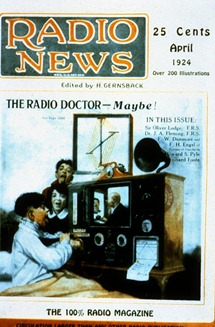I’ve been a pharmacist since 1997. The profession of pharmacy, and therefore the basic principals of the practice, haven’t changed in that time. During my career I’ve worked in six different hospitals (1 in operations, 2 as a clinician, 2 general practice, 1 informatics), one long-term care pharmacy, once as a consultant pharmacist in long term care, in retail for two different retail chains, one community pharmacy and as a relief pharmacist for about a year. Looks pretty bad when I put it in writing. What can I say, I get bored.
PPMI
Expanding the role of pharmacy technicians
If you know me then you know that I’m a proponent of expanding the role of pharmacy technicians in the acute care pharmacy setting. I believe pharmacy technicians are underutilized and are capable of doing many functions within a healthcare system to improve patient care, both directly and indirectly, as well as free up pharmacists to do the things they should be doing.
Eliminating Barriers To Care Using Technology [Video]
Interesting video that talks about the use of telepharmacy for Medication Therapy Management (MTM).
Telepharmacy, it’s not just a made-up word
 The definition of telemedicine is “the use of telecommunication technologies to deliver medical information and services to locations at a distance from the care giver or educator.†So what’s the definition of telepharmacy? I’m not quite sure, but replacing “medical information and services†with “pharmacy information and services†seems reasonable.
The definition of telemedicine is “the use of telecommunication technologies to deliver medical information and services to locations at a distance from the care giver or educator.†So what’s the definition of telepharmacy? I’m not quite sure, but replacing “medical information and services†with “pharmacy information and services†seems reasonable.
I saw a lot of interest in telepharmacy at the ASHP Midyear meeting in New Orleans last month. Based on all the activity one might think it’s a new concept. Au contraire, telemedicine has been around since at least the 1960’s, when NASA built this technology into spacecraft and astronauts’ suits to monitor physiological parameters. Crud, one could argue that the concept has been around much longer than that (see image to the right from April 1924).
Webinar: Effective Pharmacy Interactions with ‘The C-Suite’
I think a key for the future of pharmacy will be for pharmacy leaders to learn how to engage the C-Suite within their own healthcare system. That makes the content of this webinar from Pharmacy OneSource particularly interesting. Wednesday, December 14th: "Effective Pharmacy Interactions with ‘The C-Suite’" Jim Jorgenson, RPh, MS, FASHP Reserve your Webinar … Read more
Pharmacists impact on osteoporosis management (review article)
Pharmacists are pretty good at helping people with chronic medical conditions manage their medications, hence the term Medication Therapy Managment (MTM). You can find more information about MTM at the American Pharmacists Association (APhA) website. Anyway, I came across an article this morning that gives the results of a literature review “to examine the impact … Read more
What do pharmacists want?
 It’s a simple question with a simple answer. In today’s pharmacy environment pharmacists want to do more “clinical†activities and distance themselves from the physical pharmacy. See, I told you it was simple.
It’s a simple question with a simple answer. In today’s pharmacy environment pharmacists want to do more “clinical†activities and distance themselves from the physical pharmacy. See, I told you it was simple.
For the last several months I’ve been listening to people tell me what pharmacists, and pharmacies, want. I find it interesting that most of the opinions differ from mine. No big deal as opinions are opinions, remember? But today I had a brief, albeit passionate discussion over what pharmacists want. The people telling me what pharmacists wanted weren’t healthcare professionals. They were engineers, sales people, etc. I know that comes off a bit elitist, but it’s not. I don’t pretend to know what an engineer knows, so perhaps they shouldn’t pretend to know what I know. Fair? I think so.
Technology and pharmacist impact on medication adherence
mobihealthnews: “According to a recent study by Express Scripts, Americans might be wasting as much as $258 billion annually by not taking their prescribed medications. Missed doses can lead to emergency room visits and doctors’ visits, which could be prevented if medication adherence was improved. The Express Scripts study found that more than half of people who believe they take their medications properly are not, according to a report in USA Today.
A similar study conducted by NEHI found that poor medication adherence results in illnesses and ensuing treatments that cost some $290 billion in unnecessary spending each year, $100 billion of that in avoidable hospitalizations alone.
Two members of Congress recently introduced bills to allow Medicare reimbursement for more patients to sit down with therapists one-on-one and equip patients with pill boxes or text message services that help patients become more adherent, the USA Today report said.
The Toronto University College of Pharmacy conducted a study that found medication therapy saved about $93.78 per patient annually in a study of 23,798 people, USA Today reports.â€
AJHP Podcast on PPMI with Dr. Henri Manasse of ASHP
I just finished listening to an AJHP Podcast interview of Dr. Henri Manasse, CEO and Executive Vice President of ASHP and keynote speaker at the PPMI Summit last year. Overall it was an interesting interview. Dr. Manasse had some good things to say. One thing I found particularly interesting was a short section near the … Read more
Do larger hospitals have an edge? Maybe
I’ve worked in several hospitals over the course of my career, ranging in size from 25 acute care beds to nearly 600 (584 beds to be exact). While 600 beds isn’t a large hospital, it certainly isn’t small. Regardless of the size of the hospital I’ve worked in, the operations inside the walls of the pharmacy are strikingly similar, including from the way pharmacists process orders to the way technicians handle distribution. There are differences to be sure, but the basics are the same. Differences to note include clinical services and use of automation and technology.